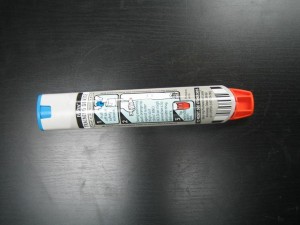A child who experiences an allergic reaction to peanut butter is considered allergic to it. Peanut allergy is considered common among children who experience symptoms that range from minor irritation or even an anaphylactic shock. Allergies to peanuts are common triggers for anaphylaxis among young children. Based on studies, children below the age of 3 can have peanut allergies. In the past, doctors advise parents to avoid feeding a young child with peanut butter to prevent a severe allergic reaction. At the present, many still advise parents not to allow a child to eat peanut butter until he/she is two years old.
http://youtu.be/762qf0VtPOA
Peanut allergy
Many toddlers with allergies to peanuts also have allergies to other tree nuts since the proteins that trigger the allergic reaction are similar to the proteins in other tree nuts. Tree nuts are likely to trigger an allergic reaction among toddlers who are allergic to almonds, cashews, walnuts, Brazil nuts, macadamia nuts, hazelnuts, pistachios and pecans. Take note that allergic reactions to other tree nuts can be as severe as an allergic reaction to peanuts.
How to handle an allergic reaction

When handling an allergic reaction to peanut butter, it depends on the severity of the reaction. It is best to have an on-hand supply of an oral antihistamine in case a child experiences a mild allergic reaction. If the child ingests peanut butter and suffers a mild reaction such as hives, provide the antihistamine. In case the child turns red and stops breathing, call for emergency assistance so that emergency care can be provided right away. If an EpiPen is available, you have to use it right away and ask someone to call for emergency assistance. The epinephrine shot is usually administered in the thigh and it will help counteract the symptoms of an allergic reaction.
How to avoid an allergic reaction to peanut butter
The simplest way to avoid an allergic reaction to peanut is to cut out any possible exposure. Do not allow peanuts or other tree nuts in the house. It is best to prepare everything that the toddler eats at home. You have to inform the parents of your child’s friends regarding the allergy as well as the daycare provider. When eating outside, you have to make sure to discuss the allergy with the server and insist that the chef is informed about it.
Testing for peanut butter allergy
In order to determine if a child is allergic to peanut butter, tests can be performed by the doctor such as a skin prick test or a blood test. These tests will help determine if the is actually allergic to peanut butter.
Outgrowing peanut allergies
In some children, they can outgrow peanut allergies as they leave their toddlerhood. Based on studies, children who outgrow peanut allergies must continue eating products with concentrated amounts of peanuts or peanut-based products in order to maintain the tolerance for peanuts.
